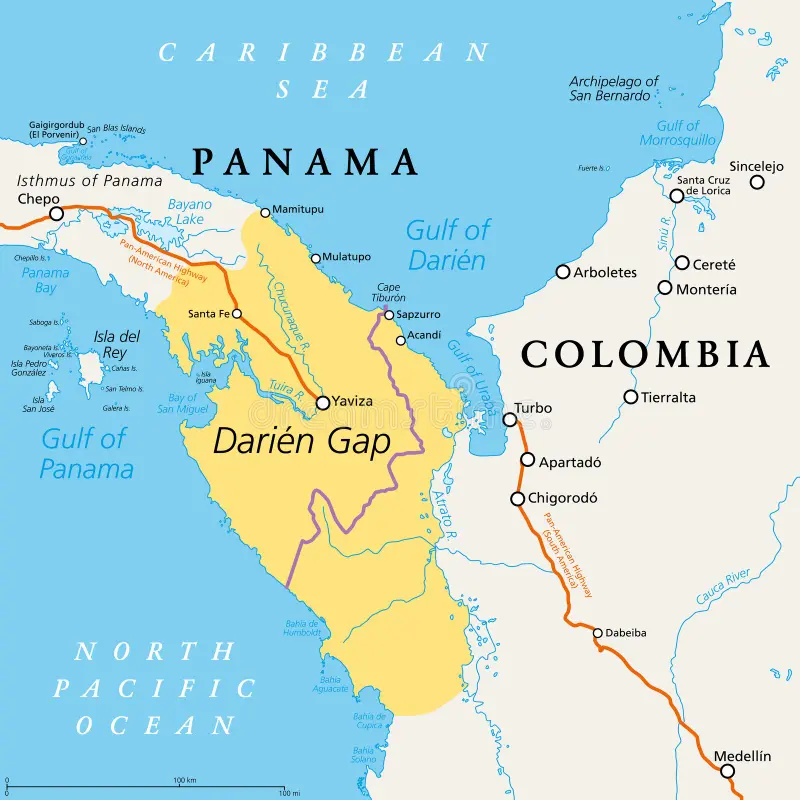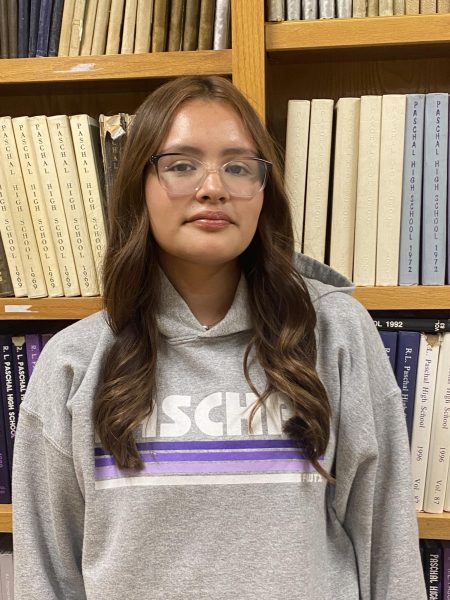Imagine waking up one day and realizing that your voice, your choice, and your future are being decided by forces beyond your control. That’s the reality for many young people in Venezuela and for two Paschal students. These two students who will remain anonymous for security concerns, came to this country to escape persecution and pursue a better, safer life. This is their story.
Both students, who we will refer to as Maria and Elena, are from Venezuela. Venezuela is a country located on the northern coast of South America, bordered by Colombia to the west, Brazil to the south, and Guyana to the east. It’s known for its diverse landscapes, including the Andes mountains, Amazon rainforest, and Caribbean coastline. As well as its controversial politics.
A closely watched election, which saw office -holder President Nicolás Maduro securing another term in office, has further divided the nation and worsened the ongoing economic crisis.
In the September 2024 issue of The Atlantic, a story features the Darién Gap, a dangerous migrant path into the US, and shines light on the challenges of this remote and treacherous expanse of land that separates Central and South America. One of Paschal’s own students, who we will call Maria, took this risky and unsafe route to get to the US. It took her 3-4 months to make the trip from Colombia to Texas.
Maria, originally from Venezuela, relocated to Colombia starting in Bogota before moving to Medellin. To go through the Darien Gap, the family sought out the help of a guide, to help in preparing them for what clothing, food, and essentials they’d need for the challenging trek.
The trek was a challenging 5-day journey covering an estimated 60 miles, where carrying essential supplies was crucial. Despite the hardships faced on the route, her family made it through Central America which they considered even more challenging due to corrupt law enforcement.
Many times they were asked to continue handing over additional money to corrupt officials. The dangers of the Darien Gap included long walks between campsites, self-reliance, and the risk of theft or injury.
Certain natives guided the way, with blue rags marking safe paths and red indicating dangerous areas. Despite initial doubts about leaving, the sudden departure left no time for goodbyes as Maria’s family sold their home to fund their journey. After reaching Mexico and facing a wait in Mexico City, they eventually headed to Monterrey, surrendering to border patrol while crossing the Rio Grande. The transition into the US was confusing since they had no family, but did have friends in Texas who offered support.
Elena, also originally from Venezuela, spent a few months living in Colombia, though it was a brief stay compared to her time in Venezuela. Life in Venezuela was comfortable, although not affluent, as her grandfather’s job at PDVSA, an oil company, tied them to supporting the government to safeguard his position and safety.
With family connections in the US and Colombian residency papers, she flew from Panama to Mexico, briefly staying in Monterrey where she had relatives. Limited to a 10-day stay in Mexico, they crossed the Rio Grande to surrender to border patrol. The transition brought challenges with the language barrier and adjusting to a new culture in the US, marking a period of struggle in adapting to her new surroundings.
For the people of Venezuela, the election results have only heightened their struggles with the economic crisis. As stated by another of our students at Paschal, “It really hurts seeing how my country is turning out, and it hurts more knowing my family in Venezuela is suffering because of Maduro.”
The country continues to grapple with hyperinflation, widespread poverty, and severe shortages of basic goods and services. The local currency remains unstable, leaving many Venezuelans struggling to afford even the most essential items. Gasoline is one of the hardest things to get as of these past couple of years. Elena said, “Some family members would spend hours if not a whole day waiting to get gasoline and other times you would wait in these long lines only to get there and for them to tell you they are out”.
The political instability and economic uncertainty following the election have only added to the challenges faced by the people of Venezuela. Many are now bracing for even more difficult times ahead, as the prospect of economic reforms remains uncertain under the current leadership.
As Venezuela navigates this turbulent period, its people are left to confront the harsh realities of daily life in a country gripped by economic turmoil and political strife. As stated by the New York Times “more than half a million people have come from Venezuela into the US since 2o21”.The road ahead remains uncertain, with many hoping for a path towards recovery and stability that can offer a glimmer of hope in the midst of all the ongoing challenges.
The outcome of the election has been met with many allegations of voter fraud and manipulation, leading to protests across the country. Many opposition leaders and international observers have condemned the election process as flawed and undemocratic, further polarizing an already deeply divided society.
Former Paschal staff member Coach Moreno says, “This comes as no surprise to people like me that have experienced first hand the hardships of the socialist government, first with Hugo Chavez and now with Nicolas Maduro.”
Recently a social media post and the presidential debate included conflicting ideas about immigrants who come to this country to seek a better life. A post that went viral accused immigrants in Ohio of eating the pets of local residents. While one candidate pushed that narrative, another candidate did not validate that story. Immigration, according to many, will continue to be a controversial subject. For many students at Paschal High School, the promise of a safer, better life is not controversial, it is a life line.




